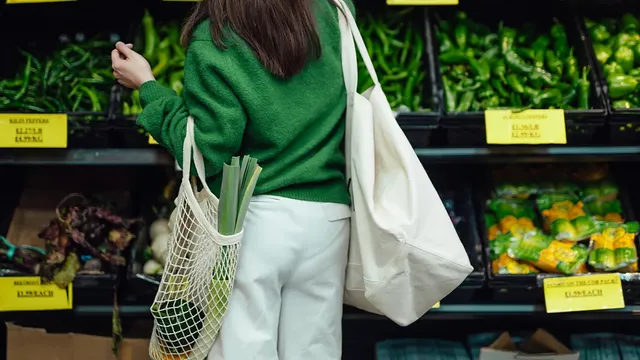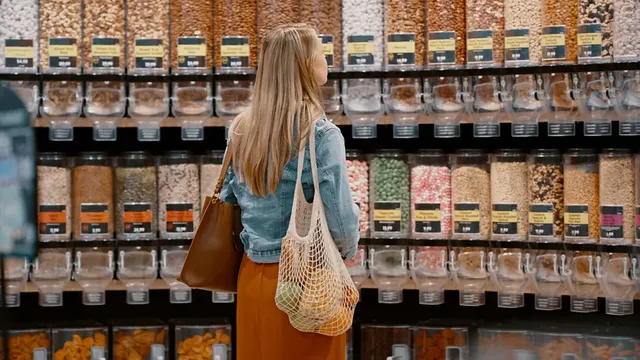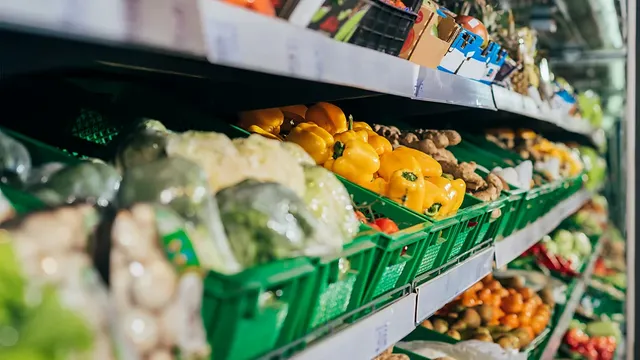it is better to buy in bulk ?#future planet 🌏 #environment
I tried buying in bulk to see if it was cheaper

I tried buying in bulk to cut down on packaging and lower my grocery bill.
Buying food in bulk can seem like a hassle – but it's not only better for the planet, it'll save you a lot of money too.
A Moment of Awakening
Standing in aisle 12 of my Los Angeles grocery store, I found myself staring at a bag of organic oats priced at $11.99 (£9.55). These oats would barely last my family a week. This moment sparked a realization: oats shouldn't be this expensive.
The Decision to Cut Out the Middleman
Granted, I was shopping at a local, convenient store rather than a budget-friendly one. But this was absurd. Feeling like I was being overcharged, I vowed right there in aisle 12 to start buying directly from producers and eliminate the middleman. My goal was to discover what I could buy directly, how much money I could save, and as an added benefit, reduce packaging.

I found that it was far cheaper to buy groceries in bulk.
Research Begins: Finding Trustworthy Sources
I began by listing my most frequently purchased dried goods. Although I initially considered buying dairy directly, it quickly became too complicated. So, I focused on bulk purchases of oil, oats, rice, mung beans, and tea. My research included finding trustworthy organic sources, understanding their supply chains, and comparing costs and packaging.
The Cost Comparison: Saving Pennies
My first major comparison involved oats. I calculated whether a 25lb (11.4kg) bag of organic oats at $48 (£38.21) was cheaper than the store price of $8.99 (£7.16) for 2.6lb (1.18kg). The bulk purchase was indeed cheaper, costing $1.92 (£1.53) per pound versus $3.46 (£2.75) per pound for the smaller bags. Buying 25lb (11.4kg) of supermarket oats would have cost $86.50 (£68.86).
The savings continued with organic coconut oil: $30.75 (£24.48) for 3.8 liters (1 gallon) compared to $7.49 (£5.96) for 400ml (14.1oz). Purchasing the same amount in individual jars would have cost $71.15 (£56.64).
Mung beans were another success. I usually spent $11.99 (£9.55) on a 2lb (0.91kg) bag, but found a 25lb (11.4kg) bag for $71.75 (£57.11), saving $78.13 (£62.19). Buying in bulk was consistently cheaper.
The Environmental Impact: The Carbon Footprint
Determining if bulk buying is better for the planet was more challenging. According to Valérie Patreau, a doctorate student in sustainable innovation at Polytechnique Montreal, it's difficult to assess a product's environmental impact without comprehensive information, typically obtained through life-cycle assessments. While waste reduction benefits are clear, evaluating carbon footprints requires detailed data.
Simplifying the Process: A Streamlined Approach
To simplify, I chose one company that sold nearly everything I needed for this experiment. I ordered mung beans, powdered dandelion root (a tea and coffee alternative), rice, and oats from them. By consolidating my order with one company, I reduced travel emissions and delivery packaging.
Conclusion
My journey began with a frustrating moment in aisle 12 and led to significant savings and a more sustainable shopping approach. By buying directly from producers and in bulk, I not only cut costs but also made strides in reducing packaging waste and potentially my carbon footprint.

Many US consumers are looking to reduce waste, in particular single-use packaging.
Global food miles account for 19% of food systems emissions, and so it's important to me to buy local wherever possible. The company, called Essential Organics, is headquartered in Washington. But the products came from all over the world. My dandelion tea came from China. The rice from Thailand. Mung beans from India. Coconut oil from the Philippines. Only the oats came from the US. I was never going to be able to work out the carbon count. But then I wouldn't be able to when buying individual items either.
Alannah LaVergne, a spokesperson for the online retailer Essential Organics, says as the company's goal is to encourage bulk buying, they have a higher shipping minimum. "This minimises the product-to-plastic packaging ratio and saves the customer more money per pound," says LaVergne.
Buying in bulk and buying local is rather hard to achieve, and you have to pick your battles when it comes to sustainable shopping. I felt that all in all, if I could order in bulk from the same place at the same time, then I'd have taken all reasonable steps to lower the food's carbon footprint. Although would my carbon footprint have been smaller if I had just bought my oats from the store when I'm heading there anyway? One could spend hours thinking about this.